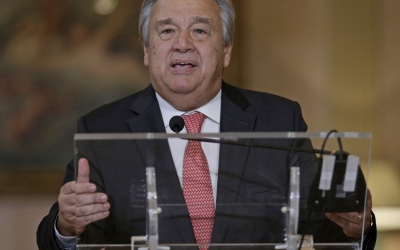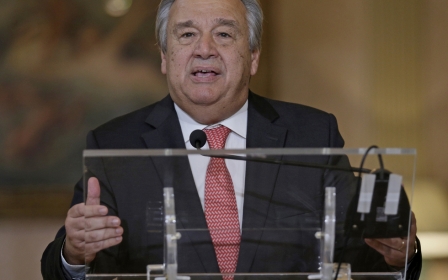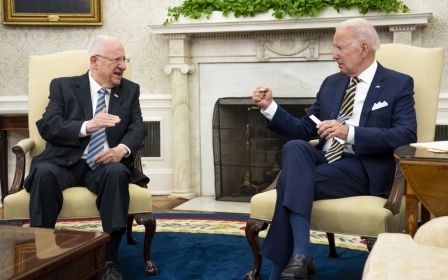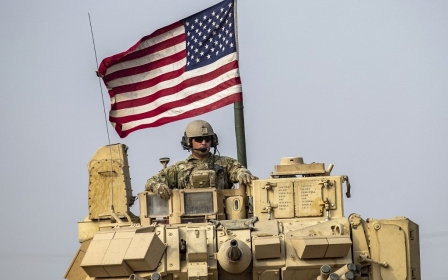Iranian press review: Nuclear deal opponent tipped as new foreign minister
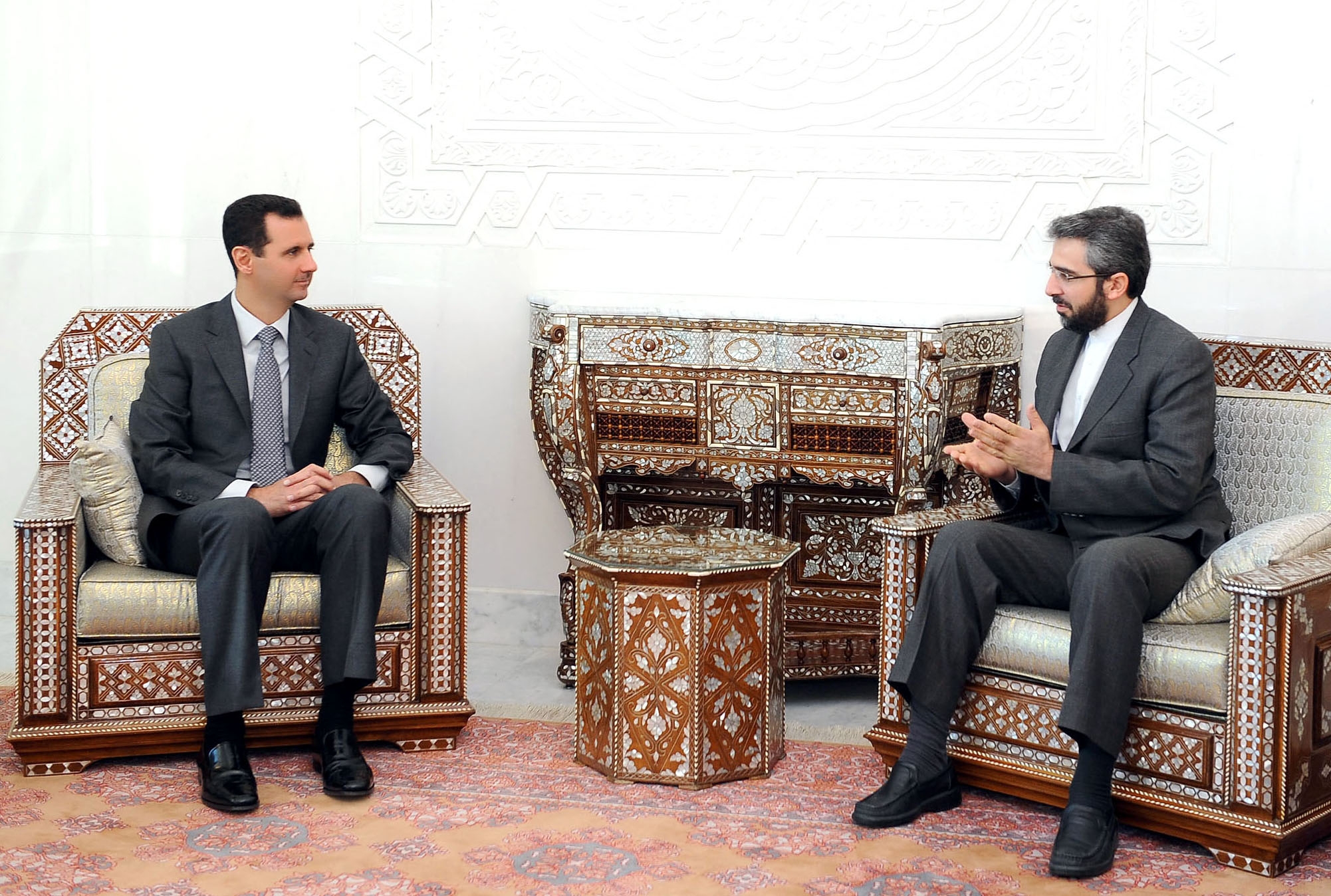
Opponents of nuclear deal to return to power in Tehran
Following president-elect Ebrahim Raisi's victory in June's Iranian elections, a number of the staunchest opponents of the 2015 nuclear deal are reportedly returning to the corridors of power in Iran.
Amid speculation over the ministers that Raisi is likely to appoint, the Aftab daily revealed that Ali Bagheri Kani - an outspoken opponent of the 2015 agreement to limit Iran's nuclear ambitions in return for sanctions relief - is probably to serve as Iran's next foreign minister.
The pro-reformist outlet said that Bagheri Kani, an ultra-conservative diplomat, had been appointed by Raisi to lead the transition process in the country's foreign ministry.
Bagheri Kani's preeminent role in the transition process in the ministry is a clear message to the diplomats who have been negotiating in Vienna for a potential return of the US to the nuclear deal.
New MEE newsletter: Jerusalem Dispatch
Sign up to get the latest insights and analysis on Israel-Palestine, alongside Turkey Unpacked and other MEE newsletters
In an introduction to a Farsi translation of US Deputy Secretary of State Wendy Sherman's autobiography, Not for the Faint of Heart: Lessons in Courage, Power and Persistence, Bagheri Kani criticised Iranian diplomats who negotiated with the US to reach the 2015 deal.
In former president Mahmoud Ahmadinejad's administration, Bagheri Kani served as a top negotiator in talks between Iran and the West over Tehran's nuclear programme. However, those negotiations reached no conclusions.
Iranians react to supreme leader's vaccination
Iranians have been divided in their reaction to the vaccination of the country's Supreme Leader Ayatollah Ali Khamenei, who on Friday was shown receiving a first dose of COVIran Barekat, a Covid-19 vaccine developed and produced by state-owned Shifa Pharmed Industrial Group.
Iran's state TV, IRIB, broadcast a video showing Khamenei receiving the first dose of the jab. On Saturday, images of his vaccination were on the front pages of all Iranian dailies, who hailed the move as a robust response to international sanctions against the country.
The establishment's supporters were quick to take to social media, celebrating Khamenei's vaccination as a political victory over the West.
"It would be written in history that in a country which was under the harshest sanctions, scientists produced a vaccine, and its highest-ranking official received the vaccine before the cameras to prove his belief in the country's youth and capabilities," wrote one Iranian Twitter user.
Meanwhile, the opposition cast doubt on the credibility of the news, suggesting that sterile water or vitamins were injected into Khamenei, without providing any evidence supporting their claim.
Others also criticised the lack of scientific data published about the vaccine and the rapid process of receiving an emergency use authorisation by the country's food and drug administration.
"The vaccination of Ali Khamenei will not remove ambiguity over the non-standard authorisation of a locally produced vaccine. He might be a religious reference, but he is not an immunology reference," wrote another user on Twitter.
Despite unveiling the new vaccine, Iranians face a severe vaccine shortage in the country, and its national vaccination drive has slowed down in recent weeks.
Iran is the country hardest hit in the region by the pandemic, unable to import enough vaccines for its 83 million population due to US sanctions and a severe economic crisis.
Analysts warn about Tehran's relations with Taliban
With the Taliban taking control of more cities and regions in Afghanistan, analysts in Tehran have warned officials over Iran's relationship with the Afghan armed group.
The Taliban has recently extended its control following fierce fighting with the army in the north and centre of Iran's eastern neighbour.
Despite the support of some Iranian conservatives for the Taliban over their mutual anti-American sentiments, foreign policy experts argue that a weak central government in Kabul would jeopardise Iran's national security, as well as adding to its issues with refugees flocking from Afghanistan.
Sabah Zangeneh, an Iranian analyst, told the Arman daily that a powerful Taliban in Afghanistan would threaten all countries that border it.
'With the withdrawal of its forces from Afghanistan, the US follows a new strategy to reduce Iran's presence in Iraq and Syria'
- Ahmad Naqibzadeh, Iranian security analyst
"In addition to Iran, the danger [of the Taliban] is threatening Tajikistan and Uzbekistan, and these countries have deployed more soldiers at their borders with Afghanistan," Zangeneh told the daily.
"Moreover, Saudi Arabia provides support and information to the Taliban. Saudis can use this influence over the Taliban to use them against the regional rivals they have."
Other experts suggested that Tehran should not trust the Taliban despite the changes in the group's rhetoric against Iran.
Since the beginning of the US-brokered Afghan peace negotiations, the Taliban's leadership has attempted to restore political relations with Iran. In December, a Taliban delegation held meetings with high-ranking Iranian officials in Tehran.
Ahmad Naqibzadeh, an Iranian security analyst, told the Aftab daily that Iranian officials who support the Taliban had been "obsessed with the US" and its forces in Afghanistan.
"The reason behind the US forces' withdrawal from Afghanistan is not because Washington quitted its goals," Naqibzadeh said in an interview with the Aftab daily.
"I believe that with the withdrawal of its forces from Afghanistan, the US follows a new strategy to reduce Iran's presence in Iraq and Syria. If the Taliban gain power in Afghanistan, Iran must deploy more forces at the border with Afghanistan," he added.
Middle East Eye delivers independent and unrivalled coverage and analysis of the Middle East, North Africa and beyond. To learn more about republishing this content and the associated fees, please fill out this form. More about MEE can be found here.


